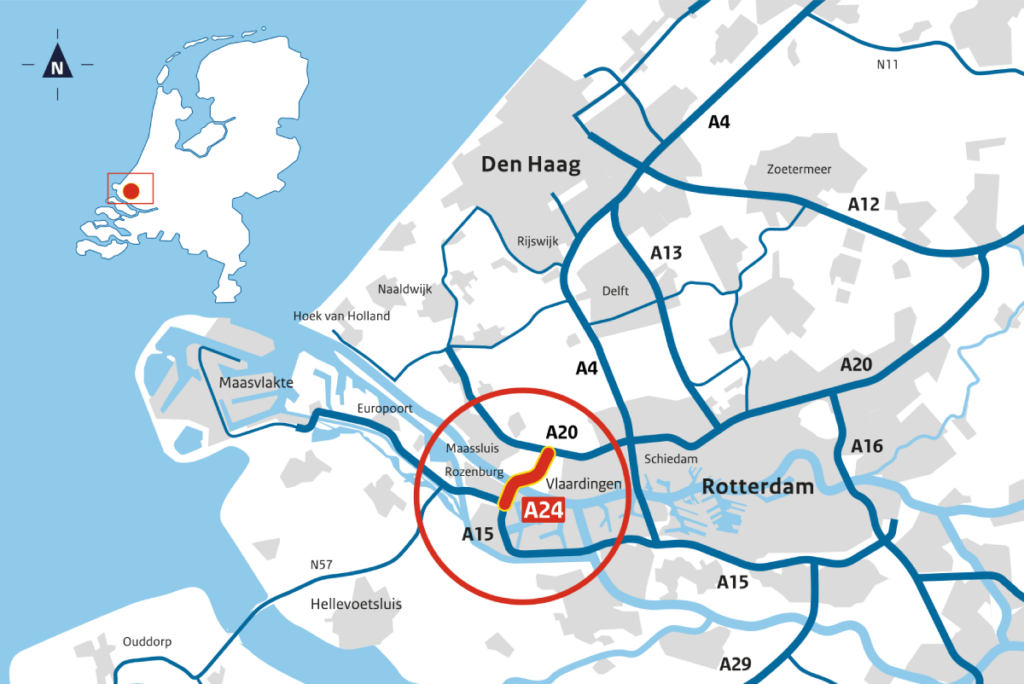You must pay the toll online yourself because the central government was unable to allocate sufficient funds for the construction of this road.
With the breakthrough of the last barrier in the Maas Delta tunnel by Minister Harbers, a new chapter in Dutch infrastructure has begun. Not just one technological highlight but also a moment of connection between North and South, literally under the river. At a depth of -28 meters NAP, representatives of Water Boards, the Port of Rotterdam Authority, the province of South Holland, the BAAK construction consortium, and Rijkswaterstaat shake hands. This symbolic gesture underlines the importance of the A24/Blankenburg connection for the region.
This new highway, which will open its doors in 2024, is an essential link between the A15 near Rozenburg and the A20 near Vlaardingen. The project, which significantly improves accessibility in the region, is an engineering masterpiece that functions without the traditional toll gates. Motorists can drive through unhindered, a novelty that eliminates waiting times. However, what is unique about this project is the financing method. Due to insufficient government funding, a toll system was chosen in which users contribute to the construction costs.
Costs
The toll costs are set at €1,45 for vehicles up to 3.500 kg and €8,70 for heavier vehicles, with the exception of trailers and caravans. This rate also applies to vehicles with a foreign license plate, which raises questions about the payment method for tourists. However, the digital approach via license plate registration and online payments offers a modern solution to this challenge.

The Blankenburg connection, with a length of 4,2 km, is not only a crucial link in the road network around Rotterdam, but is also an example of how the Netherlands integrates innovation and ease of use into its infrastructure projects. This project underlines the importance of sustainable and efficient transport solutions that stimulate economic growth while paying attention to the environment.
The introduction of a toll system without physical toll gates is a first in the Netherlands. Road users can pay the toll via e-tol.nl, with the option for automatic payment via affiliated companies or manual payment within an ample period before and after the ride. This system emphasizes the importance of progressive technologies in the management of modern infrastructure.
In addition to providing a faster route, the new connection contributes to the economic development of the region and offers an alternative to existing routes. Future users of the A24 will also be given a one-year grace period for any late payments, a gesture that smoothes the transition to this new system.
exemption
Organizations that provide essential public services, such as the police, fire brigade, emergency medical services, and body transporters, will be given the opportunity to apply for an exemption. This means that vehicles such as police cars, fire engines, ambulances, and hearses can be exempt from paying tolls. This measure recognizes the crucial function of these services, which often have to operate under time pressure and where every second counts.
The decision to exclude taxis from the possibility of exemption or exemption and to make them pay the standard rate underlines a clear distinction between commercial services and services of general interest. Taxis, although an important part of the urban transport network, do not fall under the category of essential services entitled to such an exemption.




